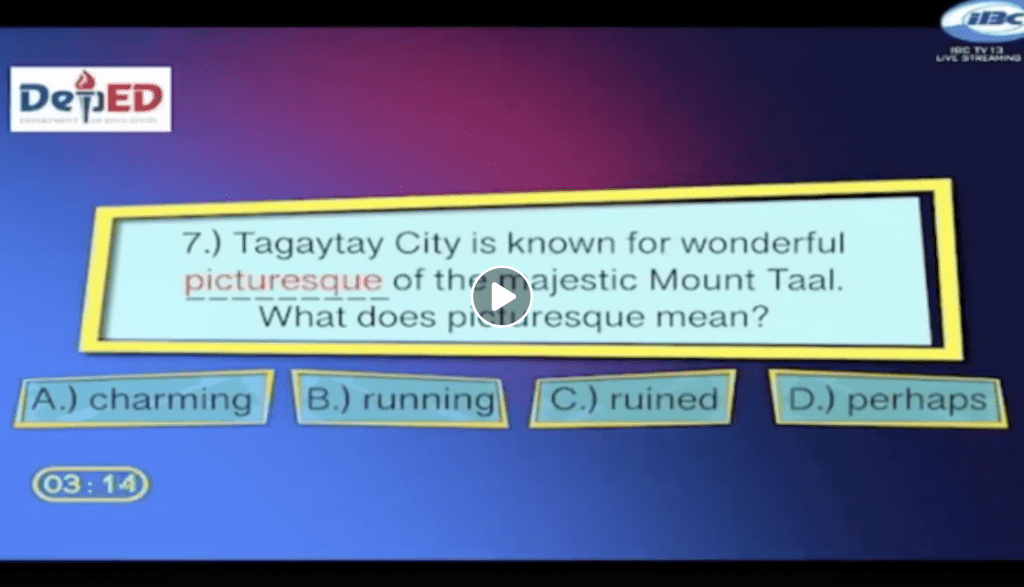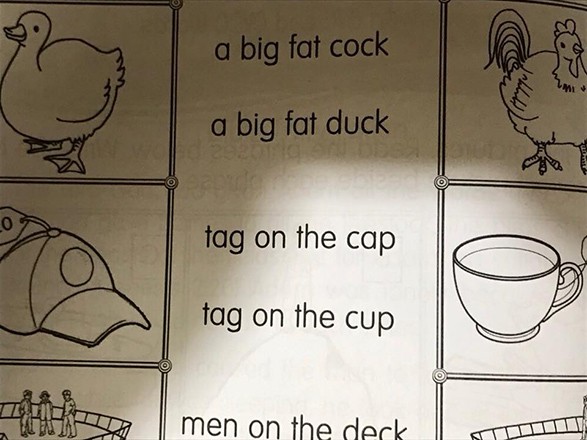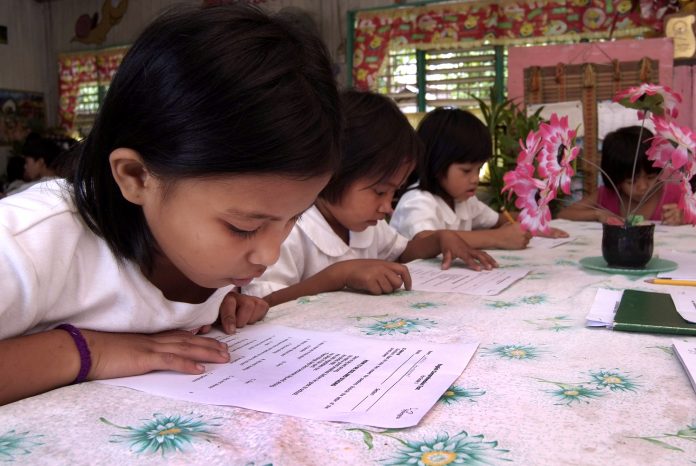I had to think twice before sharing it on Facebook.
After having recalled numerous instances in the past where concerned parents pointed out serious errors in school textbooks, I finally decided to share the post it if only to get the education department’s attention.
And so, days ago, I shared what appeared to be the screen-grabbed photo of a local broadcast showing a Grade 8 English lesson aired on TV. The logo of the Department of Education (DepEd) hung on the left uppermost side of the screen.
It was the 7th of what I presumed to be a series of sentences written in English where new words and their usage are being taught. Each entry came in the form of “multiple choice” with four selections to choose from.
The sentence went like this: “Tagaytay City is known for wonderful picturesque of the majestic Mt. Taal. What does picturesque mean?”
The word “picturesque” was underlined to highlight the new word in question.
The choices are as follows: A) charming; B) running; C) ruined; and D) perhaps.
I shared the post sometime eight in the evening of Aug. 11. An hour past noon the next day, Aug. 12, the shares have reached a little over 6,000 with a comment thread of a little over 500.
Most of the comments were raised by young folks and parents, obviously holding back the temptation to breach the borders of profanity.

No stranger to errors
Now, why would most young folks and parents raise hell on the matter of an erroneously written sentence in English?
Well, to be honest, “erroneous” is an understatement. The sentence construction had everything to do with the grotesque than the picturesque, if you know what I mean. From where I sat half-dumbfounded and half-chortling at the reactions, I recalled the rather scandalous history of school textbooks in the country.
If you recall in 2018, the DepEd drew flak for errors in textbooks ranging from the typographical to serious inaccuracies in information.
An Inquirer report stated in Aug. 2018 that “In a now viral Facebook post, several books for the K to 12 curriculum are criticized for bearing wrong and misleading information for readers. Anthony Comedia shared several photos of books ranging from the 1st to 7th grade of different subjects. One of the photos showed how a textbook misspelled ‘terraces’ and even turned Banaue into Banana. When did we ever have a ‘Banana Rice Tereces’?
One other example raised in the report showed how the book misplaced the Banaue Rice Terraces, considered the 8th Wonder of the World, in the Ilocos Region when it should accurately be within the borders of the Cordillera Administrative Region.
Other entries took on a rather discriminatory tone, describing some ethnic Filipinos as “small and dark-skinned”.
Millions worth of errors
What started off as mere errors became the focal point of inquiry when the Commission on Audit (COA), a year later, said in its report that Php254 million went to DepEd’s error-filled books.
As if this wasn’t alarming enough, the Commission on Audit also stressed that “it found that the DepEd had ‘an alarming number’ of undistributed instructional materials worth Php113.708 million. These instructional materials were procured as buffer stock from 2014 up to 2017, but as of 2018, some 3.4 million copies intended for public schools nationwide remained unused and idle in five DepEd warehouses,” according to Inquirer.
The report, based on Calipjo Go’s letter to the editor in the Inquirer in 2018, broke down the said errors as follows:
“[T]he Grade 3 ‘Araling Panlipunan Learner’s Material,’ written by Manalo, Capunitan, Galarosa and Sampang, had a staggering 1,308 errors. The audit body said that the 363-page Grade 3 ‘English Learner’s Material,’ written by 15 authors, contained 430 errors. The 185-page Grade 3 ‘Science Learner’s Material,’ which was written in Filipino, was found to have 317 errors, an average of 1.7 errors per page.”
Who these “authors” were and how the department addressed the problem are anybody’s guess.

Lowest in reading and comprehension
As Wuhan, China, grappled with the appearance of the new coronavirus in December 2019, the Philippines fell at the last rung of the 2018 Programme for International Student Assessment (PISA).
Simply said, the Philippines placed last in reading and comprehension as well as Science and Math in this global survey participated on by close to a hundred countries.
The report was quick to qualify, however, that “interventions should be made to the students of countries, like the Philippines, where relationship between a student’s socio-economic status and performance is strong.”
While I wouldn’t argue with the said assessment, could it likewise be possible that our problem with comprehension is tied with a weak facility for the English language? Math and Science, as we are well aware, are taught in Philippine classrooms mainly in English.
It doesn’t take an expert in Quantum Linguistics to know how language or a working knowledge of language—be that English, Filipino or what-have-you—shapes and forms our comprehension of ideas.
Language and comprehension are so intertwined that one cannot exist without the other. Thus, the right use of language is fundamental, in fact the most basic in all our attempts at learning.
It is likewise safe to say that if we fail at the very first rung, there’s a huge chance that we will fail in most of the rest.

Let’s keep watch
Back to my post: confirmation of the error arrived from two sources from within the education department the next day. Both admitted that the error exists and that it was shown on national TV—IBC13 and Solar TV—by way of a test broadcast days ago.
The lessons are part of the education department’s efforts to address the problem of home schooling at the time of pandemic.
Apparently, the one from DepEd who went out of his way to get in touch with me got wind of my post and reported the same to his superiors. He suggested that even while such materials fall under the purview of their local departments in the provinces, the fact that it was shown on national TV, the said lessons should first get approval from the national desk.
I definitely agree.
It also became apparent that no particular group within the department has been tasked to handle the editing of the said materials. Should this continue, there is very little chance to track down every single error that may have been mistakenly included in the said lessons.
He was, however, quick to assure me of his proposal to form a group consisting of writers and editors as a way to address the problem. Of course, all this remains to be seen.
Philosopher Ludwig Wittgenstein once wrote, “The limits of my language mean the limits of my world.”
Be that Filipino, English, or even just the approximations of other languages, language lessons from government must, at the very least, exhibit some competence. Any less may prove detrimental to our children and their future in the long run.
As I have time and again told my children, wielding language is already half the battle won.
Joel Pablo Salud is an editor, journalist and the author of several books of fiction and political nonfiction. The views and opinions expressed in this article are those of the author and do not necessarily reflect the official editorial position of LiCAS.news.









